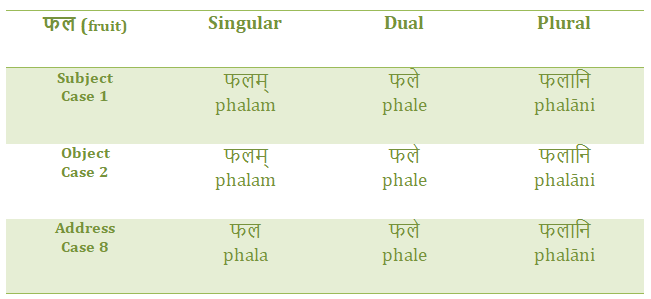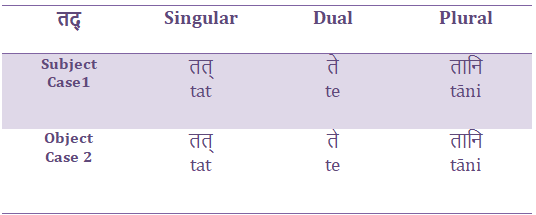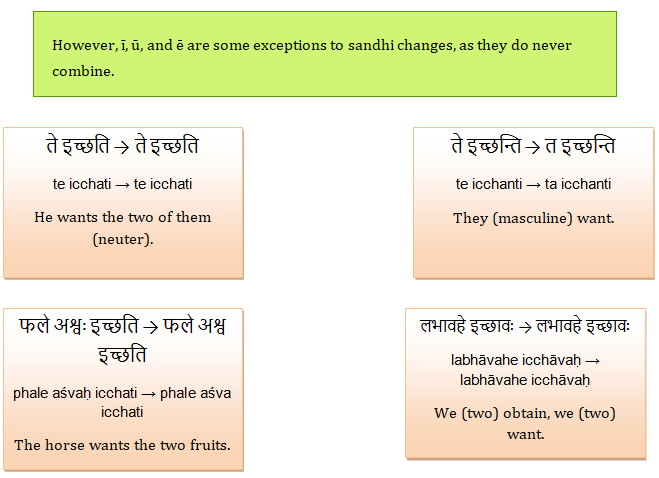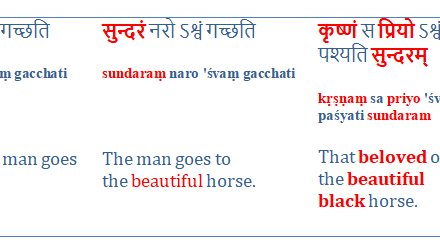Every Noun in Sanskrit has a gender i.e. Masculine (पुरुष = ‘man’), feminine (स्त्री = ‘woman’) and neuter. Neuter nouns are those which are neither masculine nor feminine. They are neutral. Let’s take a look at some of the neuter nouns.
Let us consider the word फल (fruit)
One of the strange properties of the neuter gender is that case 1 and case 2 uses identical forms and is applicable to all the neuter sounds.
Now let us consider the word तद्
However, there are some rules that follow tat;
- The voice of the letter will be lost by the stop of the preceding sound.
- If followed by the nasal consonant, the final sound will become nasal.

Another rule is that,
Final t takes the point of the pronunciation of the stop that follows it, as long as the stop is not in kavarga or pavarga.
Another rule is that,
Final t takes the point of the pronunciation of the stop that follows it, as long as the stop is not in kavarga or pavarga.
Vowels in the dual number
The dual form te is identical to the case 1 plural of a masculine tad. These two forms are easy to confuse, but all dual forms follow an extra sandhi rule:









